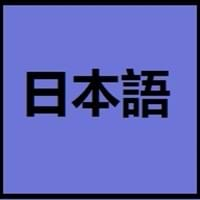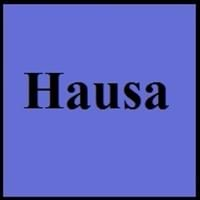Japanese and Hausa
National Language
Japan
Gambia, Nigeria
Second Language
Not spoken in any of the countries
Nigeria
Speaking Continents
Asia, Pacific
Africa
Minority Language
Palau
Benin, Cameroon, Cote d'Ivoire, Ghana, Niger, Sudan, Togo
Regulated By
Agency for Cultural Affairs (文化庁) at the Ministry of Education
Not Available
Interesting Facts
- In Japanese Language, there are 4 different ways to address people: kun, chan, san and sama.
- There are many words in Japanese language which end with vowel letter, which determines the structure and rhythm of Japanese.
- Hausa language is the most important and the best known of the Chadic branch.
- There are about one-fourth of Hausa words come from Arabic.
Similar To
Korean Language
Not Available
Derived From
Not Available
Not Available
Alphabets in
Japanese-Alphabets.jpg#200
Hausa-Alphabets.jpg#200
Writing Direction
Left-To-Right, Horizontal, Top-To-Bottom
Not Available
Hello
こんにちは (Kon'nichiwa)
sannu
Thank You
ありがとう (Arigatō)
gode ku
How Are You?
お元気ですか (O genki desu ka?)
yaya dai
Good Night
おやすみなさい (Oyasuminasai)
mai kyau dare
Good Evening
こんばんは (Konbanwa)
barka da yamma
Good Afternoon
こんにちは (Konnichiwa!)
barka da rana
Good Morning
おはよう (Ohayō)
mai kyau safe
Please
お願いします (Onegaishimasu)
Don Allah
Sorry
ごめんなさい (Gomen'nasai)
yi hakuri
Bye
さようなら (Sayōnara)
sai anjima
I Love You
愛しています (Aishiteimasu)
Ina son ku
Excuse Me
すみません (Sumimasen)
gafara dai
Dialect 1
Sanuki
Gaananci
Where They Speak
Kagawa
Ghana
How Many People Speak
Not Available
Dialect 2
Hakata
Kurhwayanci
Where They Speak
Fukuoka
Niger
Dialect 3
Kansai
Daragaram
Where They Speak
kansai
Niger
Second Language Speakers
Not Available
Native Name
日本語
حَوْسَ (ḥawsa)
Alternative Names
Not Available
Abakwariga, Habe, Haoussa, Hausawa, Kado, Mgbakpa
French Name
japonais
haoussa
German Name
Japanisch
Haussa-Sprache
Pronunciation
/nihoɴɡo/: [nihõŋɡo], [nihõŋŋo]
Not Available
Ethnicity
Japanese (Yamato)
Hausa–Fulani people
Language Family
Japonic Family
Afro-Asiatic Family
Subgroup
Not Available
Chadic
Branch
Not Available
Not Available
Early Forms
Old Japanese, Early Middle Japanese, Late Middle Japanese and Early Modern Japanese
No early forms
Standard Forms
Japanese
Hausa
Signed Forms
Signed Japanese
Not Available
Scope
Individual
Individual
ISO 639 6
Not Available
Not Available
Glottocode
nucl1643
haus1257
Linguasphere
45-CAA-a
19-HAA-b
Language Type
Living
Living
Language Linguistic Typology
Subject-Object-Verb
Subject-Verb-Object
Language Morphological Typology
Agglutinative, Synthetic
Fusional
All Japanese and Hausa Dialects
Most languages have dialects where each dialect differ from other dialect with respect to grammar and vocabulary. Here you will get to know all Japanese and Hausa dialects. Various dialects of Japanese and Hausa language differ in their pronunciations and words. Dialects of Japanese are spoken in different Japanese Speaking Countries whereas Hausa Dialects are spoken in different Hausa speaking countries. Also the number of people speaking Japanese vs Hausa Dialects varies from few thousands to many millions. Some of the Japanese dialects include: Sanuki, Hakata. Hausa dialects include: Gaananci , Kurhwayanci. Also learn about dialects in South American Languages and North American Languages.
Japanese and Hausa Speaking population
Japanese and Hausa speaking population is one of the factors based on which Japanese and Hausa languages can be compared. The total count of Japanese and Hausa Speaking population in percentage is also given. The percentage of people speaking Japanese language is 1.90 % whereas the percentage of people speaking Hausa language is 0.52 %. When we compare the speaking population of any two languages we get to know which of two languages is more popular. Find more details about how many people speak Japanese and Hausa on Japanese vs Hausa where you will get native speakers, speaking population in percentage and native names.
Japanese and Hausa Language Codes
Japanese and Hausa language codes are used in those applications where using language names are tedious. Japanese and Hausa Language Codes include all the international language codes, glottocodes and linguasphere.





